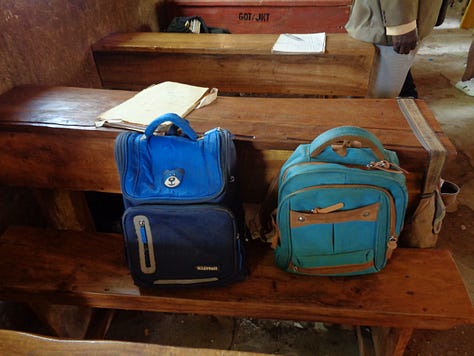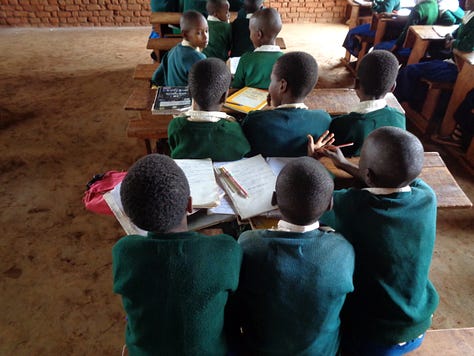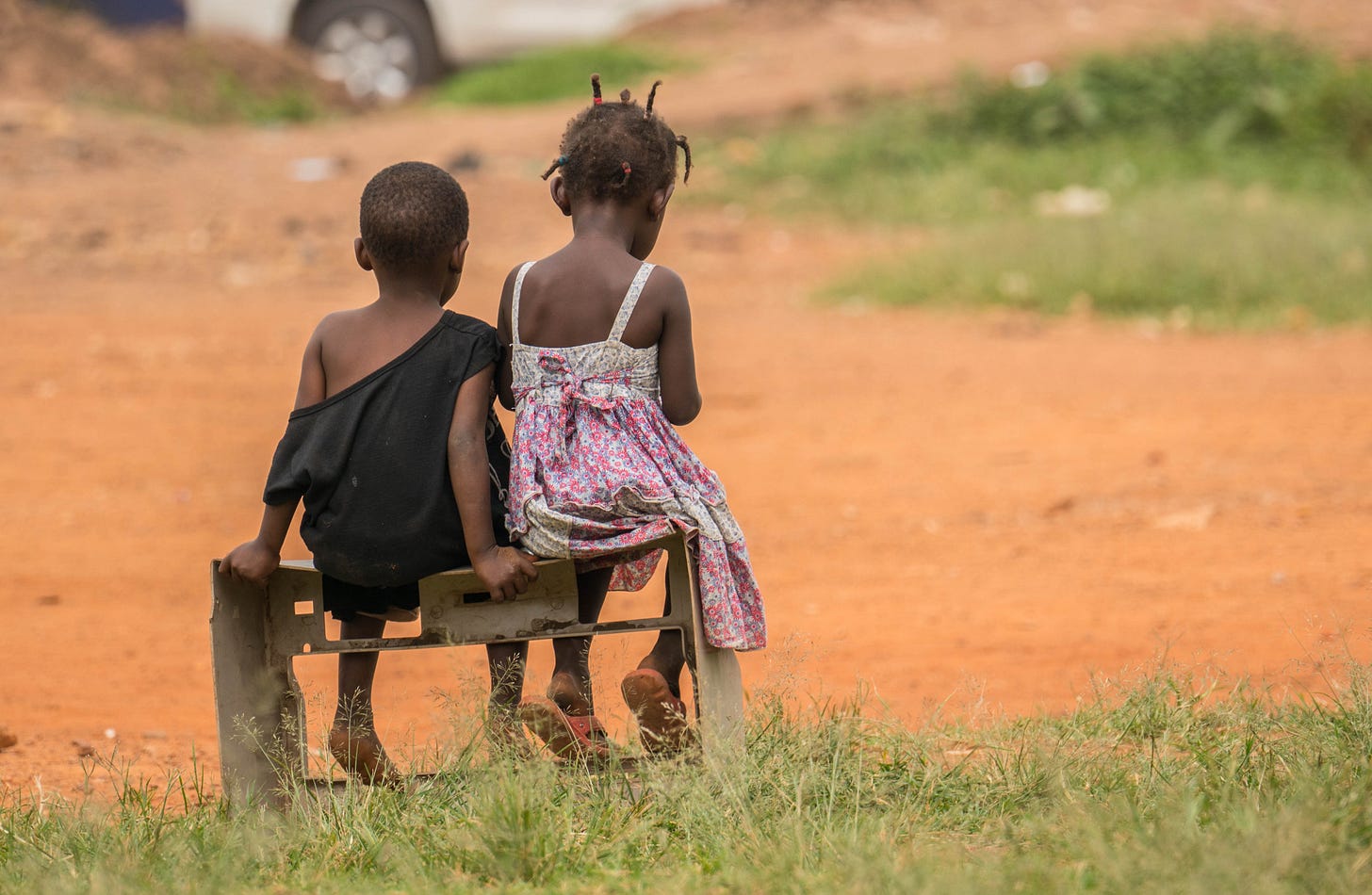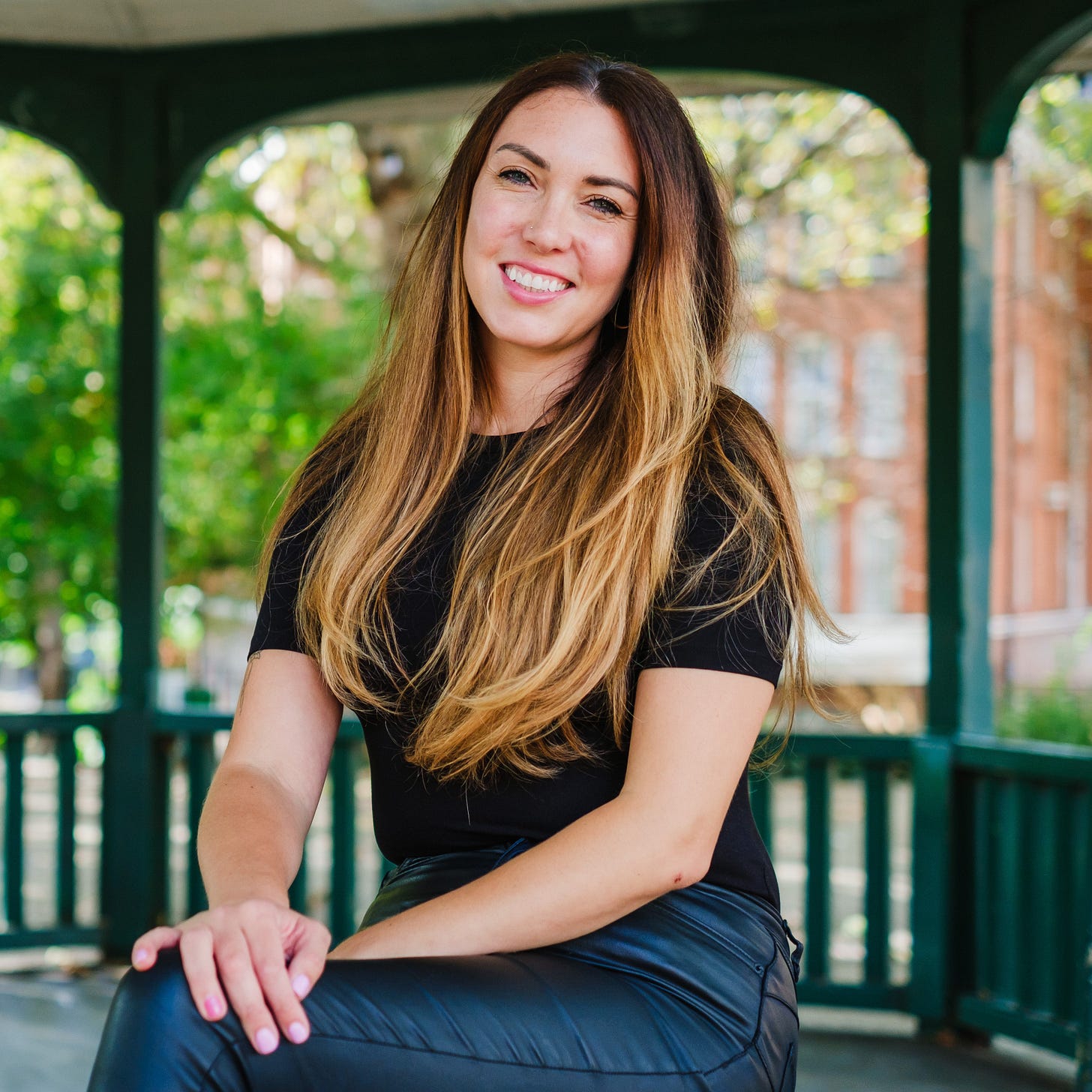'First responder' charities call for investigation into devastating foreign aid cuts
The government has announced deep cuts to Britain's role in helping abroad – now 2,400 organisations want an inquiry.
Thousands of small charities have implored the government to urgently investigate improvements to support and funding, as some vital organisations are now facing closure following the decision to cut foreign aid.
As Britain is warned it will miss the Sustainable Development Goals [SDGs] deadline – of 2030 – campaigners fear millions around the world will be left lacking education, proper healthcare, food, and routes out of poverty.
The Small International Development Charities Network [SIDCN], comprised of more than 2,400 UK-based registered charities who work in the global South, have asked the International Development Committee for an inquiry which it says would hold the government accountable for Official Development Assistance [ODA] commitments and previous policy pledges, while promoting the inclusion of grassroots organisations in the country’s development policy.
The funding for organisations – referred to as ‘first responders’ – that use community-driven solutions to drive sustainable progression in developing parts of the world, has shrunk after the USAID cuts earlier this year. The situation was compounded by February’s announcement that the UK will slash international aid from 0.5 per cent to 0.3 per cent of GDP to boost defence spending.
“Parliamentary scrutiny can promote transparency and inclusivity in funding, addressing systemic barriers faced by small charities to empower them to advance the Government’s efforts to eradicate extreme poverty and improve development,” the SIDCN said in a letter seen by The Lead.
The potential initial recommendations it made for the government included increasing and ring-fencing funding, developing time-bound frameworks to deliver tailored support for small CSOs, streamlining grant applications and reducing administrative burdens to ensure accessibility and foster partnerships between small charities, larger organisations and government bodies.
Even organisations that aren’t funded by UK aid but were feeling the ripple effect of the last round of cuts in 2021, will now indirectly be affected as the cuts created greater competition for fewer funding opportunities. Some of these charities thought they wouldn’t survive COVID. Now they face closure again.
Mikuyu Tanzania is one SIDCN member with serious concerns. When broken toilets at a secondary school in Babati town in rural northeastern Tanzania caused ten students a week to be admitted to hospital with dehydration and abandon their education last year, the small charity stepped in.
“We saw that as totally unacceptable, acted, and got that down to zero kids,” says co-founder and co-director Julian Page. “We have a reputation for listening and delivering and there are no other non-governmental organisations [NGOs] in Babati that do what we do.”
Page added that the decision by Britain “makes a mockery of the SDGs” that UN member states have vowed to work towards the targets by 2030.
“And it doesn't really feel like that's being mentioned anywhere, because everybody's following this kind of Trump ‘put your nation first’ mantra,” he tells The Lead.
Mikiyu were already put off by the difficult application process for UK aid, which it said partly excluded them. The charity uses a co-production methodology. This means that “all have an equal voice around our table”, says Page. The charity partners with local NGOs in Babati and beyond.
“We're all about working hand-in-hand with the local community to help them achieve their development goals,” said Page. “But if we can't help get funding, we can't help them achieve their goals, and they remain in the cycle of poverty.”
When people in Uganda’s biggest slums can’t send their children to school they’re not likely to turn to a well-known Western NGO, instead they go to the community centres of the small charity Kids Club Kampala [KCK], set up by two Brits and a Ugandan 16 years ago.
“The choice shouldn’t be whether to cut aid or defence, as the government could have chosen to tax the richest in society instead of making the cut.”
“An average person on the street used to go to their local health clinic to get their anti-HIV drugs,” says Olivia Barker White, London-based co-founder and chief executive of KCK.
“When suddenly those drugs disappear, they're not going to be going to the head office of Oxfam in Kampala. They come to us, because they know us and we have a relationship with them, and they trust us.”
Barker White, Connie Fraser and Samuel Wambayo never set out to start the organisation. But they couldn’t see another one which they thought was adequately and ethically helping slum children in Uganda’s capital. KCK is now doing pioneering work through its projects such as Ewafe, where abandoned children are reunited with their own families or resettled with others via kinship or foster care.
Even during COVID in 2020, the charity managed to raise nearly half a million pounds to provide a staggering 15,000,000 meals to 165,000 vulnerable people, and increase its revenue. They were supported by UK aid through the Small Charities Challenge Fund with a grant of £49,966 from late 2018 until October 2020, for an early education project to support children aged between three to six years.
KCK applied for the Small Charities Challenge Fund in 2020, but were unsuccessful, because UK aid closed the project in March the following year. In 2021, the ODA budget was cut from 0.7 per cent to 0.5 per cent of Gross National Income [GNI] to bolster public finances and the economy during the pandemic.
Labour promised to reinstate the target to 0.7 per cent in its 2024 election manifesto.
Barker White says she was shocked that the party was overseeing the cuts. She pointed out that in the 1990s Tony Blair, while prime minister, made a “massive deal about solving the AIDS crisis around the world”.
“You expect this maybe from a more right wing government, but I'm very surprised it's happening under Labour,” she says.
A problem, Barker White says, was that when the Foreign and Commonwealth Office and the Department for International Development merged in 2020, development was pushed to the bottom of the agenda.
“So now development is really never going to be seen as a priority,” she adds. “It’s always going to be seen as part of the foreign strategy.”
She stressed that the choice shouldn’t be whether to cut aid or defence, as the government could have chosen to tax the richest in society instead of making the cut.
Devastating consequences
Lauren Sundercombe, a trustee at The Vanessa Grant Trust, which supports education in Kenya, says they were currently relying on trusts and foundations, but many had shifted priorities or reduced international giving since the last round of UK cuts.
Her organisation was actively seeking additional funding to sustain and grow its work, “from improving school infrastructure to investing in teacher training and inclusive education.”
Sundercombe adds: “The uncertainty makes it harder to commit to long-term, community-led partnerships that build real and lasting impact. Ultimately, this can mean that some children are unable to access education at all, or are left without the safe, inclusive and inspiring learning environments that every child deserves.”



Bigger organisations, such as Concern Worldwide, have warned the cuts will have devastating consequences for people in the global South who bear the greatest brunt of the conflict, climate, humanitarian, and inequality crisis.
“We were already off-track to meet the SDGs by 2030, and these cuts will set us back even further – not only will we now miss this deadline we have set for ourselves, the aid cuts will undo the progress we had worked so hard to achieve,” says Anushree Rao, director of the charity’s advocacy and institutional relationships.
The media officer for the International Development Committee, Jacob Moreton, said they could not comment on individual evidence submissions. All evidence it received would be publicly available on its website.
Bond, the UK network for organisations working in international development, said the cuts should be reversed, but at the very least they urged the government to mitigate their impact by maintaining UK aid at 0.5 per cent of GNI over the next two years and to dramatically reduce the amount of UK aid spent on asylum accommodation in the country.
“This would help prevent a funding cliff-edge and protect vital programmes where it is needed most,” said Bond’s media adviser Jess Salter.
Writing in The Times last month [April 23], the new development minister Jenny Chapman defended the cuts to boost defence. She said the UK would need to “modernise” development for taxpayers would receive value for money.
While foreign secretary David Lammy has said he wants to see “a long overdue conversation about the future architecture of aid” in the wake of USAID cuts.
The Foreign, Commonwealth and Development Office would not comment.
“The aid budget is an investment in the UK’s security by helping to solve the root causes of conflict and instability – reducing the need for costly interventions in the future,” reads a SIDCN letter that members can send to their MP. It continues: “At this time, the UK should be strengthening its commitment to international development and solidarity, not retreating from it by making a false choice between aid and defence.” ■
About the author: Amy is a widely-published freelance journalist with two decades of experiences mainly covering human rights and social justice, with a bit of culture and travel too. She's reported from all around the world and lived in Africa.
At The Lead, we’re seriously concerned about the global consequences of slashing foreign aid, as well as the domestic fallout from further cuts to departmental budgets. Our Westminster Editor, Zoe Grunewald, has explored how these aid reductions threaten Britain’s soft power and global influence, and why echoing Donald Trump’s approach is a dangerous path. To support our independent journalism on people, place, and policy across the UK, consider taking out a paid subscription.







Very timely!!!
Thank you!! 🙏🏼